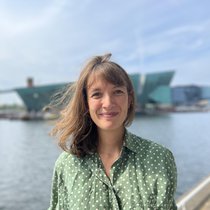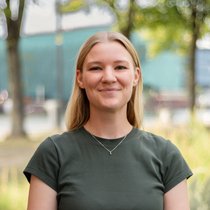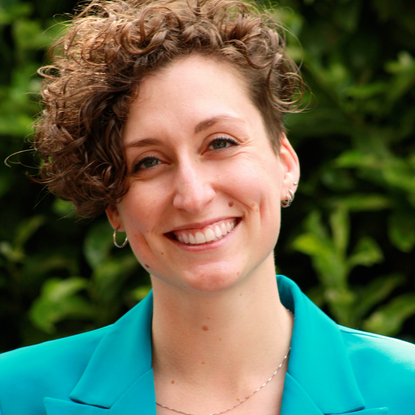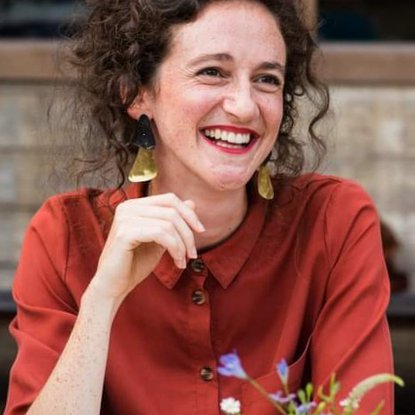Our built environment is vulnerable to climate-related events such as floods, droughts and heatwaves. Too often, we devise single-hazard and environmentally unfriendly solutions. MULTICARE develops construction technologies, digital tools and frameworks to offer enhanced safety, whilst safeguarding energy efficiency and sustainability all at once.
MULTICARE’s goal
MULTICARE aims to enhance Europe's resilience by developing adaptation solutions for the built environment, both physical (such as materials and technologies) and digital (such as methods and services). The project consists of 21 partners in 6 European countries, covering the whole technical value chain required for solutions in resilient and sustainable buildings. Their work is carried out with a user-centred, inclusive, and participatory approach.
The project’s results will be demonstrated in large-scale pilots in Italy, Romania, and the Netherlands. The building demonstrations have been chosen to represent the largest European residential market for renovations and the emerging market for modern sustainable construction. Moreover, the sites have been selected for their diverse climatic conditions, type, and severity of multiple hazards, as well as economic and societal differences.
Integrated climate resilience
The urgent need for climate action has been highlighted by the extreme climatic events that caused the EU €520 billion in economic losses between 1980 and 2020. In addition, climate change does not only affect the economy, but also the health and well-being of people, especially vulnerable groups.
Despite progress, there's a lack of integrated adaptation solutions, resilience control methods, and cost-effective, low-carbon technologies. The European Strategy on Adaptation to Climate Change therefore prioritizes building a climate-resilient future by enhancing knowledge of climate impacts and solutions.
Strengthening the built environment's resilience is crucial and can be paired with the EU's aim to decarbonize and reduce environmental impact.
“The importance of this project lies in its holistic approach towards a future that demands both innovation and resilience. By integrating multiple domains, addressing various hazards, and spanning multiple scales, we are creating a blueprint for a sustainable and user-centric built environment. Our project not only safeguards against immediate threats like earthquakes, floods, and heat waves, but also ensures that, in the face of adversity, our buildings and cities can recover and thrive. It's a commitment to a future that is as resilient as it is sustainable.”
Francesca Alberti
Project Manager Circularity in Urban Regions
Technology and digital tools
MULTICARE covers the entire disaster management life cycle, involving technical, social, economic, and environmental resilience domains to achieve its ambitious goals. AMS Institute is specifically responsible for the demonstrations in Amsterdam, where both physical and virtual demonstrations will be developed.
The physical demonstrator focuses on the construction of a 6-story building. Its modular timber structure and concrete raft foundation align with circular construction principles, aiming for a long lifespan and adaptability. The virtual demonstrator evaluates energy performance, climate resilience, and circularity in city interventions.
With the help of the virtual demonstrator, a responsive design tool is developed. The tool supports urban design by providing optimal scenarios, considering variations in parameters like building material prices and climate. This approach, replicable across Dutch municipalities and historic cities in other European countries, aids in selecting materials and retrofit planning, incorporating indicators for resilience to natural extreme events.
“OMRT values MULTICARE's focus on sustainability, which aligns with our goal to create environmentally responsible and innovative architectural solutions. Additionally, our engagement in MULTICARE reflects our commitment to building resiliency and considering future scenarios, ensuring that our designs not only meet today's needs but are also adaptable to tomorrow's challenges.”
Hamidreza Shahriari, Project Engineer at OMRT

MULTICARE combines the approach of physical and digital solutions
“Addressing the market's uncertainty in biobased and climate-resilient construction is a key challenge. Through our involvement in MULTICARE and the development of a climate-resilient facade pilot in Amsterdam, we're tackling these issues. Our parametric tool provides crucial insights into various construction techniques and costs, paving the way for faster adoption of climate-positive construction methods.”
Rickwin Huisman, Co-founder/CEO of Boom Builds

As shown in the figure above, the MULTICARE technologies and digital services will be developed for:
- Multiple Hazards: a vital multi-hazard approach for resilience-based design against earthquakes, floods, and heat stresses. It characterizes hazards based on impact, return period, and warning time. This approach will be validated in Italy, the Netherlands, and Romania, each facing different hazards and climates.
- Multiple Scales: Assessment of resilience and impact at various scales is crucial for effective low-carbon adaptation in the built environment. MULTICARE will offer innovative indicators and multi-criteria methods, improving digital solutions and support tools for informed decisions across material, component, building, and urban levels. This ensures consistent, reliable solutions, also considering resilient supply chains.
- Multiple Domains: Consideration of technical, economic, environmental, and social factors in risk assessment, resilience analysis, and technology design. The life-cycle perspective ensures solutions are resilient, cost-effective, sustainable, safe, and comfortable. Community characteristics, such as social capital and safety, significantly influence resilience.
MULTICARE solutions improve building performance and occupants’ satisfaction. The solutions increase safety and resilience in case of extreme climate events, and can also be used to improve the performance of new prefabricated constructions, thus extending the potential impact of MULTICARE solutions.
| Duration: |
|
| Related Information: |
Project members

Francesca Alberti

Lydia Giokari
AMS Institute
Joke Dufourmont
AMS Institute
Kyra Koning

Maéva Dang

Zhikai Peng
TU Delft
Elizabeth Migoni Alejandre
TU Delft
Isabelle Snaauw
AMS InstitutePartners




















